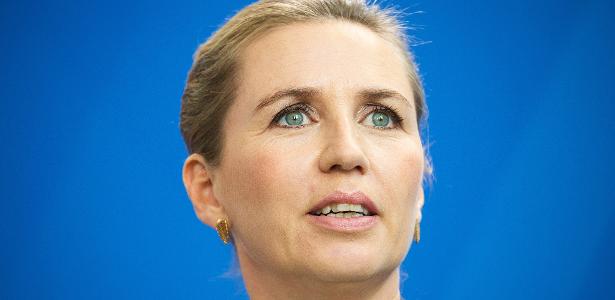Denmark changes ruling to receive benefits for labor shortages
3 min read
Denmark is currently experiencing a workforce shortage of 10,500 professionals, mainly in the service sector. To try to solve the problem, Prime Minister Mette Frederiksen’s government is proposing to change the rules for receiving certain social benefits in the country.
The presentation and approval of the country’s new economic growth plan must be voted on and approved by the Danish parliament before the end-of-year recess, and is already in force early next year. The plan aims to integrate 20,000 people outside the labor market.
Among the measures introduced by the government is the introduction of the rule as a mandatory requirement for “women of non-Western origin” who live in the country, who do not speak Danish, but who have received social benefits from the government for more than three years, to work or actively contribute to Danish society within 37 hours in week, which is equivalent to the state’s weekly working day.
According to Danish government data, six out of 10 women from the Middle East, North Africa and Turkey do not participate in the country’s labor market. Prime Minister Mette Frederiksen was adamant that “we want to introduce a new business logic in which people have a duty to contribute and be useful, and if they cannot find regular employment, they will have to work voluntarily to receive their social benefits at the end of the month.”
Discounts in unemployment insurance for young graduates
This procedure generates dissatisfaction among young people. Under the new proposal, the rate of financial compensation for Danes who have just graduated from higher education and who do not have a job for the first two years should be reduced.
Currently, recent graduates under the age of 30 who are unemployed receive DKK 13,815 (the equivalent of R$ 11,500) per month in unemployment insurance benefits. The government said it would reduce this value to 9,500 Danish kroner, or about 7,500 Brazilian reals.
For those over 30 with dependent children, this amount should be reduced to 12,000 DKK (9,900 BRL). At the same time, the government proposes to reduce the period of unemployment insurance for trainees from two to one year.
“New graduates should contribute a little bit to Danish society so that more workers will have unemployment insurance coverage in the future,” said Danish Labor Minister Peter Hummelgaard.
Industry and service sectors need workers
According to Denmark’s National Institute of Research and Statistics, the construction industry experienced a 43% labor shortage for the sixth month in a row in 2021. This number is close to the highest in the history of statistics dating back to 2005.
For the head of the Danish Confederation of Industry, Lars Sorensen, companies in the country are in the midst of a historic labor shortage, and the plan announced by the government “must ensure a lasting recovery for the benefit of all sectors of the economy”.
The crisis also affected the hotel sector. During an interview with a Danish TV channel, the director of the Scandinavian hotel chain, Soren Verbier, said that “it is completely absurd that there are no more guests because hotels do not have enough staff to work in cleaning rooms or in restaurants in these establishments”.

“Devoted food specialist. General alcohol fanatic. Amateur explorer. Infuriatingly humble social media scholar. Analyst.”




